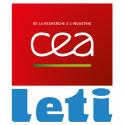M08 Low Power: The power of Power in future wireless smart systems for the Internet of Things
Agenda
| Time | Label | Session |
|---|---|---|
| 14:30 | M08.1 | Session 1 Chair: |
| 14:30 | M08.1.1 | Introduction to autonomous wireless smart systems and design challenges Davide Quaglia, EDALab s.r.l., IT Autonomous wireless smart systems will be defined with reference to current applications. Their architecture and functionality will be described with particular emphasis on communicating aspects. Finally, design challenges will be presented with particular emphasis on mechanisms to guarantee energy sustainability. |
| 15:00 | M08.1.2 | Energy Storage Devices: Characteristics, Non-Idealities and Design Challenges Massimo Poncino, Politecnico di Torino, IT This section of the tutorial will discuss the main peculiarities of energy storage devices, and battery in particular, used in autonomous smart systems. The presentation will describe the main non-idealities and how they results in some misconception about the usage of energy in electronic systems. Part of the discussion will be also devoted to the issue of energy conversions that can results in significant energy inefficiency in the overall power budget of smart systems. |
| 16:30 | M08.2 | Session 2 Chair: |
| 16:30 | M08.2.1 | Managing power to enable autonomous communicating objects Alain Pegatoquet, LEAT/University of Nice Sophia Antipolis, FR The main goal of this presentation is to describe efficient power management policies and protocols for energy neutral systems. This talk also covers different aspects related to autonomous systems, such as energy storage sizing, multi-hop network, transmission power control, etc. An architecture suitable to harvest different sources of energy is introduced as well. Experiments, conducted either in simulation or with a real hardware platform, demonstrate the benefits of the proposed power management policies on the system quality of service. This presentation ends with trends for future wireless smart systems. |
| 17:30 | M08.2.2 | Holistic modeling and simulation techniques Davide Quaglia, EDALab s.r.l., IT Because of the increasing optimization needed in future wireless smart systems, the designer should jointly take into account aspects from different domains, such as digital (hardware, software, network) and analog (electronic, electromechanical, etc., as for instance RF, MEMS, power sources, thermal issues, sensors and actuators). Therefore the joint verification of such aspects requires new methodologies and tools for multi-disciplinary and multi-scale modeling and simulation. This presentation will start by providing a survey on modeling fundamentals and then it will focus on a novel approach for joint software-hardware-energy-network simulation which was proposed in SMAC European Project. |









